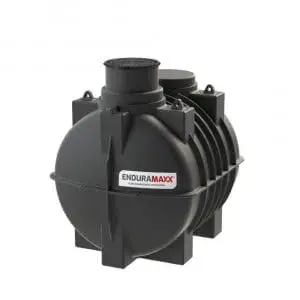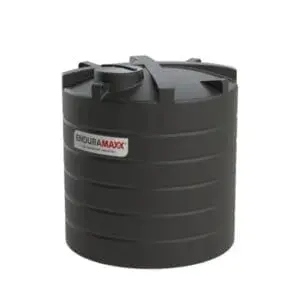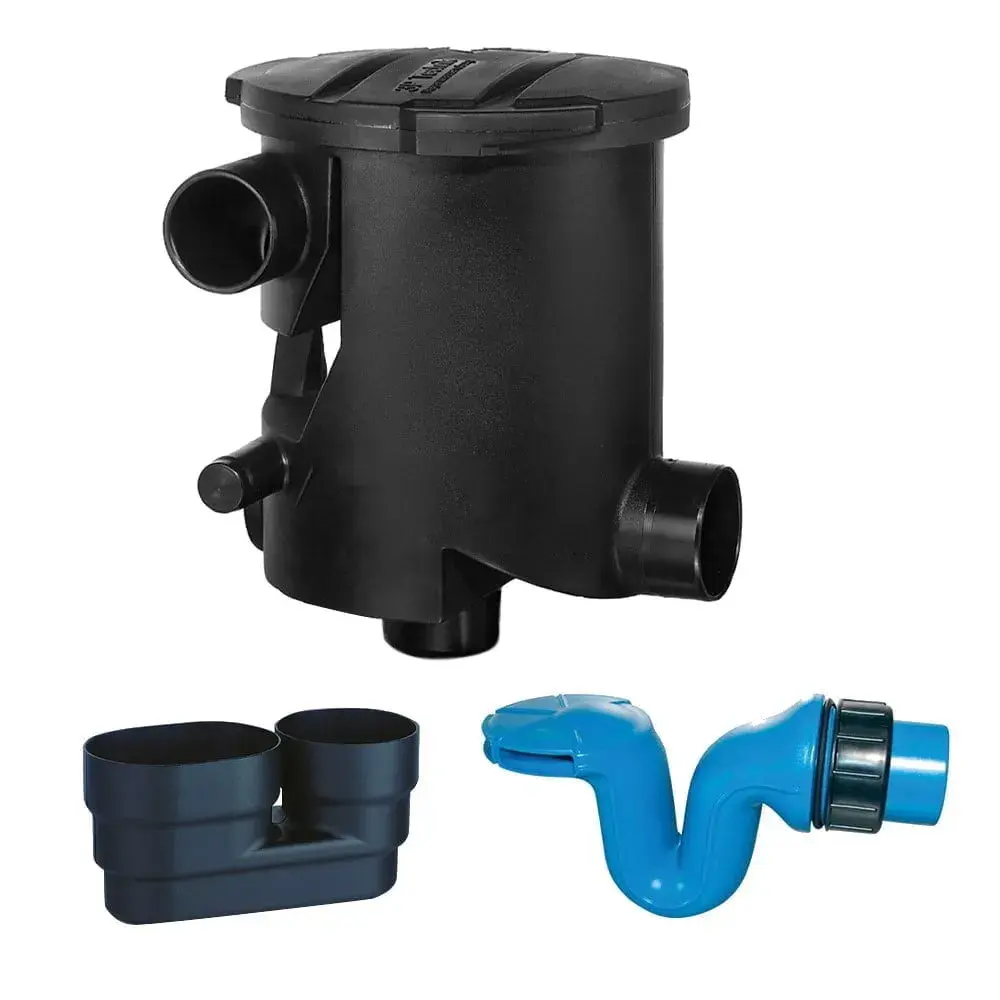Advantages of Conical Tanks for Effluent & Sludge over flat bottom storage tanks for wastewater treatment often start with the ability to fully drain the tank which makes washing and decanting easier. When setting up storage tanks for wastewater storage there are often constraints on budgets which can sometimes result in a flat base tank being selected over the more expensive conical tank.
Conical Tank has many advantages over flat base tanks for effluent and sludge storage in the storage of primary treatment wastewater. The conical tanks advantages are also seen later in the processes where cleaner water may still have particles that need settling out. Bellow, we compare both options and explain how to make this decision right the first time. A cone bottom storage tank is a round cylinder structure with a conical base allowing a full drain of the contents. There is a choice of different sloped cones for different applications such as sludge, however, in settlement & clarification, a steep cone is required for processes they are used for. More details here.
Cone vs Flat Bottom Tank Comparison
| Tank Type | Pros | Cons |
| Cone Bottom Tanks | 1) Sloped base = 100% drainage
2) Easy to bottom drain sludge 3) Can be used for settlement applications. |
1) Extra cost. Must purchase a stand and hardware.
2) Not as easy to move. |
| Flat Bottom Tanks | 1) Quick to install.
2) Can be moved easily. 3) Less cost (no stand needed) |
1) Some liquid will stay in the tank and not drain.
2) Build-up of sediment in the tank over time |
| Range of Capacities Available | 50 Litre – 30,000 Litres | |
Why Conical Tanks are used for effluent and sludge?
Cone-bottom tanks are used in wastewater applications where 100% drainage of the tank is required and to reduce sludge from exiting the tank to processes downstream. Dewatering is the further reduction of the sludge amount after the thickening as the liquid still must be dewatered to a dry and porous form. Dewatering is generally by machine processes using a filter press and centrifuge to treat wastewater. Enduramaxx works with many industrial wastewater treatment companies who offer advice on wastewater and sludge treatment processes covering coagulation, chemical treatment flocculation, biological treatment, sludge digestion, sludge drying, pH control and dewatering.
What is Sludge Treatment?
Sludge treatment is necessary to reduce and ameliorate the sludges produced within the biological wastewater treatment. Sludge generally has fewer dried solids in it than it looks like it has as a typical DAF plant sludge will be approximately 5% solid or 95% water equating to 19 tonnes of water and 1 tonne of solids from a 20-tonne load of sludge. By thickening the sludge there is a lot of potential for costs savings on the plant as sludge can be expensive to dispose of and is priced by volume.
What is Sludge Thickening
Sludge thickening is the treatment the sludge undergoes and is possible to reach a volume reduction of up to 80% by thickening before further treatment is required in the wastewater treatment system. This is where wastewater treatment
Why Decant Valves are used for effluent and sludge tanks?
Sludge Tank Decant Valves, BSP or flanged for sludge tanks, racking, decanting. For draining off liquid from sludge in tanks. Over time sludge settles and the water on top can be drained off.
The Slope of a Cone-Bottom Tank
The slope of the cone tank impacts the efficiency at which stored liquids can exit the tank and the efficiency at which the materials stored will settle in the tank. Heavy liquids and sludge require a steeper tank slope design to facilitate settling when in a silent or clarification tank, however for bulk storage sludge tanks a shallow 5- or 15-degree cone will suffice. View our full range of conical tanks here.
Enduramaxx Conical Sludge Tanks
Enduramaxx manufacture tanks for effluent & sludge storage from either Polypropylene or High-Density Polyethylene which is selected to suit your specific application. Sludge is a thick, soft mud or other viscous liquids that is typically the by-product of wastewater treatment, industrial wastewater solids and settled suspension from potable water treatment. It often contains various types of pathogens as well as heavy contaminants, in the case of industrial waste, chemical pollutants. Sludge contaminated by chemical pollutants or heavy metals, demands complex treatment with these tanks having a number of applications on small sewage treatment plants, the concentration of food and agricultural waste for anaerobic digestion, and concentration of apple mulch after cider fermentation in the drinks industry.
For more information about cone-bottom settlement tanks, please refer to the contact us, email us at sales@enduramaxx.co.uk to speak to an Enduramaxx storage tank specialist. Follow Enduramaxx on Linkedin here.
Posts By Topics
- Blog (303)
- Chemical Storage Tanks (118)
- Chemical Dosing Tanks (114)
- Chemical Tanks (114)
- Water Tanks (58)
- Rainwater Harvesting Tanks (43)
- Vertical Rainwater Tanks (31)
- Vertical Storage Tanks (31)
- Cone Bottom Tanks (19)
- Conical Cone Tanks (18)
- Rainwater Harvesting (17)
- Water Bowsers (15)
- Horizontal Tanks (14)
- Potable Water Tanks (13)
- Farming (9)
- Case Studies (8)
- Industrial Storage Tanks (7)
- Liquid Fertilser Storage Tanks (6)
- WRAS Approved Potable Tanks (6)
- Wine and Beer Production (6)
- Horizontal Transport Tanks (5)
- Microbrewery (5)
- Rainwater (5)
- Category 5 Break Tanks (4)
- Cider Production (4)
- Mixer Tanks (4)
- Molasses Tanks (4)
- Polyethylene tanks (4)
- Rainwater Filter Kits (4)
- SPECIALIST & BESPOKE TANKS (4)
- Bunded Tanks (3)
- Slimline Tanks (3)
- WRAS Approved (3)
- Clarification Tanks (2)
- Crosslinked Polymer Tanks (XLPE) (2)
- Fertiliser Tanks (2)
- Sump Tanks (2)
- Tank Installation (2)
- Water Butt (2)
- underground water tanks (2)
- ACCESSORIES & FITTINGS (1)
- ATV & UTV SPRAYING UNITS (1)
- Above Ground Effluent Tanks (1)
- Bespoke Tank Frames (1)
- Category 5 Turret (1)
- Caustic Soda Tanks (1)
- Closed Top Bunded Tanks (1)
- Craft beer (1)
- Effluent Tanks (1)
- Enduramaxx (1)
- Ferric Chloride Tanks (1)
- Fire Safety Regulations (1)
- Fire Sprinkler Water Storage Tanks (1)
- Industrial Water Tank (1)
- Open Top Bunded Tanks (1)
- Open Top Cone Tanks (1)
- Open Top Vertical Tanks (1)
- Polyethylene Potable Water Tanks (1)
- Polyvinylidene Fluoride (PVDF) Tanks (1)
- Polyvinylidene Fluoride Tanks (PVDF) (1)
- Pressure Washers (1)
- Pro Series Spot Sprayers (1)
- RWH (1)
- Sodium Hydroxide Storage Tanks (1)
- Sprayer Fill-up Tanks (1)
- Uncategorised (1)
- liquid fertiliser tank (1)
Sign up to the newsletter
enduramaxx.marketing
Related Posts
Best Full-Drain Tank on the Market | Enduramaxx - Manufacturers of Polyethylene Tanks
What’s the Best Full-Drain Tank on the Market? If you aren’t completely draining your chemical...
Cone vs Flat Bottom Tanks: Best Choice? - Enduramaxx Ltd
When setting up storage tanks, a tank farm or chemical storage facilities, the number one question...
Microbrewery And Craft Beer Brewers Could Face Hop Shortage
We’ve mentioned how we’re supplying more and more cone bottom tanks to microbreweries and craft...
Related Products
From £1,080.00 inc. VAT
£900.00 exc. VAT
From £1,344.00 inc. VAT
£1,120.00 exc. VAT
From £768.00 inc. VAT
£640.00 exc. VAT
£480.00 inc. VAT
£400.00 exc. VAT






